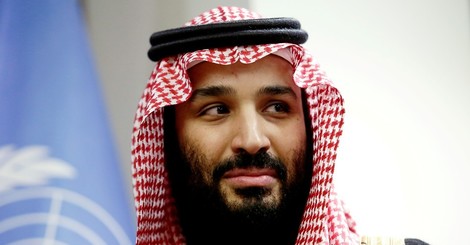Your podcast discovery platform
Curious minds select the most fascinating podcasts from around the world. Discover hand-piqd audio recommendations on your favorite topics.

piqer for: Globalization and politics Global finds
I am an Australian freelance journalist focussing on conflicts, politics, and warzones around the world. I have been working as a journalist for over 5 years, having reported from Australia, Germany, China, Egypt, Palestine, and Ukraine. I am especially interested in the way that new technologies are being used in conflict zones in unexpected and often disturbing ways. During my time working as a journalist, I also co-founded open-source war reporting site Conflict News.
Mohammed Bin Salman: The Man Who Holds The Keys To The Kingdom
Ironically, for one of the world's most repressive countries, the Kingdom of Saudi Arabia is also one of the staunchest allies of the United States. But could the country's regressive theocracy be reformed from within?
Enter Crown Prince Mohammed bin Salman (MbS), who since November last year seized de-facto control of the kingdom and is now promising radical change. Aged just 32, the ambitious royal has plans to reform the country's oil-dependent economy and leverage the huge wealth of the House of Saud to drag the country into the 21st century. He is investing hundreds of billions of dollars into high tech industries and special economic zones, centring around a brand new 'city of the future' called NEOM, which will rise from the sands in the coming decades. As well, he has shown a willingness to reform the country's ultraconservative society and increase the rights (and prominence) of women.
Of course, one has good reason to be skeptical. Despite having near-absolute power, he has only made token moves to change a legal system that regularly executes people for religious crimes. As well, he has personally overseen the country's disastrous war in Yemen, which has led to the deaths of thousands of civilians and caused what the UN calls the “largest humanitarian catastrophe in the world”.
Considering this, this lengthy one-on-one interview between Bin Salman and Jeffrey Goldberg for The Atlantic is unique for its frankness. The Saudi leader is not afraid to talk about the problems of ruling his kingdom and appears to be willing to make concessions to former enemies such as Israel. Nonetheless, the interview also shows his apparent cognitive dissonance on many issues, most notably his country's historic support for Islamic extremism.
While it may be PR or propaganda, it still provides some level of insight into the future direction of the country, and is a must-read for anyone interested in the region.
